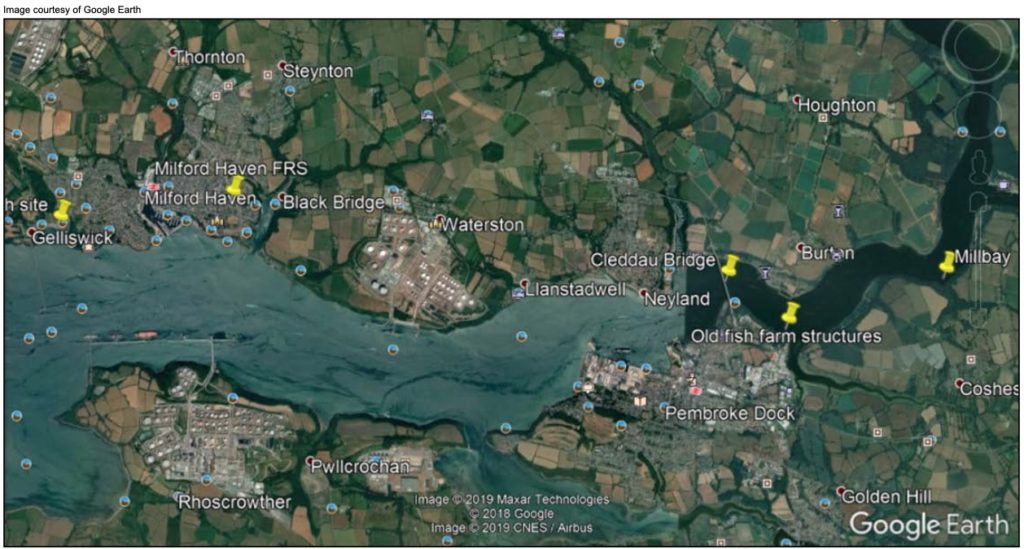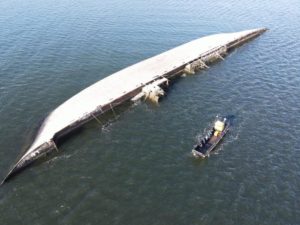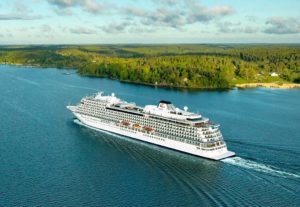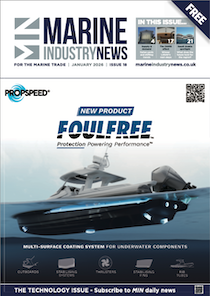Un-coordinated manoeuvres at speed caused crash says MAIB
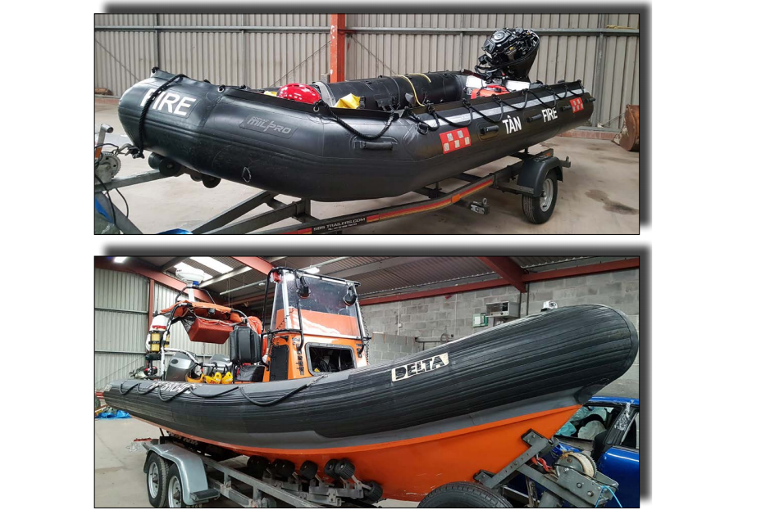
The Marine Accident Investigation Branch (MAIB) has released its report into a collision on the River Cleddau, near Milford Haven on 17 September 2019 with loss of one life.
Two fire and rescue service boats collided while undertaking boat training and familiarisation because, the report says, both were operating at speed and carrying out un-coordinated manoeuvres in the same stretch of the river. The manoeuvres resulted in the boats heading towards each other and the subsequent action taken to avoid a collision was unsuccessful.
The collision occurred between a Zodiac Milpro inflatable boat – primarily used in flood rescues – and a Delta rigid inflatable boat (RIB).
The report said the RIB’s bow struck the middle of the Zodiac at an angle of about 45 degrees and hit a passenger on the head before or after he was knocked into the water.
As the boats separated, he was seen floating motionless on the water, having died almost instantly.
The investigation found, among other outcomes, that no one was in overall charge of the training and familiarisation activities, so no one was properly managed or briefed.
The operation of the boats did not adhere to the requirements of the local standard operating procedures or risk assessments, and the Fire and Rescue Services in the UK did not operate boats to a common standard or code of practice.
“This tragic accident could have been avoided had the training activities been properly planned and communicated to all the fire and rescue crew on the water that morning,” says Andrew Moll, chief inspector of marine accidents. “It was unnecessary for the two boats to be operating in close proximity to each other in a wide stretch of the River Cleddau. Neither of the boats’ crew were aware of the other’s intended activities, nor were they keeping an effective lookout as they manoeuvred at speed.
“Our investigation found that elements of the Mid and West Wales Fire and Rescue Service documentation and procedures for boat operations were out of date, unclear and presented confusing safety messages to the reader. In addition, it was found that at a national level, fire and rescue service boats are not being operated consistently to a recognised standard when not on inland flood rescue duties.
“Mid and West Wales Fire and Rescue Service has taken a number of actions following this investigation, but I have recommended that it also reviews the qualifications required of its boat crews and implement measures to maintain crew competency. I have further recommended that the National Fire Chief’s Council work with the Maritime and Coastguard Agency to introduce a standard code for the operations of its watercraft.”
Recommendations made by MAIB include the local fire and rescue service reviewing the crewing and staff qualification requirements for its boats and implementing measures to maintain crew competency as boat helmsman.
Additionally, MAIB has recommended that the National Fire Chief’s Council adopts a nationwide standard of boat operations for all craft capable of being operated at sea.
